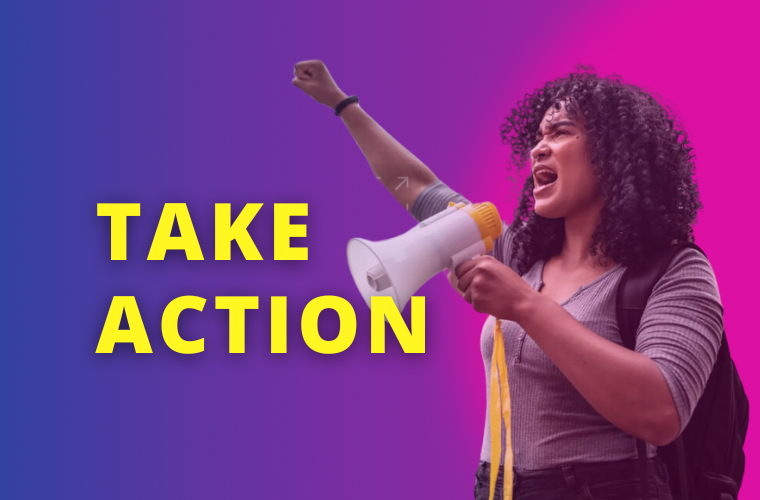

Protecting Chosen Families & Caregivers: 2 California bills making waves
To support these bills and others advancing the rights of California workers and their families, visit our California Action Center.
Thanks to our partners at California Employment Lawyers Association for contributing content to this post.
The COVID-19 pandemic has exacerbated long-standing inequities and highlighted the need for systemic change. A year into this crisis, we have seen the devastating consequences for women and families, especially women of color. These disparate impacts have pushed women out of the workforce at record rates as more and more women are forced to shoulder family and caregiving responsibilities in the midst of school closures and a shift to a more remote world.
Protections for families and caregivers have never been more critical. California must pass legislation to ensure the definition of family is more inclusive and reflective of modern family dynamics and to ensure no caregivers face discrimination as families recover from the pandemic’s fallout. These measures are necessary steps as we begin navigating a “new normal” for our communities. We must prioritize equity in our policies for a post-pandemic world. This session, Equal Rights Advocates is advocating for two bills that do exactly that, alongside Stronger California partners California Employment Lawyers Association, California Work and Family Coalition, and Legal Aid at Work.
Rights for Chosen Family: AB 1041
AB 1041, authored by Assemblymember Buffy Wicks, is essential to ensuring that California’s working caregivers, predominantly women and especially women of color, are able to take time away from work to provide care for seriously ill loved ones, regardless of blood or legal relationship, without fear of losing their jobs.
Due to cultural, economic and social forces, the overwhelming majority of households today depart from the “nuclear family” model of a married couple and their biological children—instead, family households increasingly include other relatives and close loved ones who are not biologically or legally related. An analysis of Census Bureau data in 2020 shows that only 18.4 percent of American households follow the traditional nuclear family structure. Still, California’s family leave laws continue to reflect the outdated nuclear family model and only allow workers time off to care for certain narrowly defined family members.
Only 18% of American households follow the traditional nuclear family structure. Still, California’s family leave laws continue to reflect the outdated nuclear family model…
This policy gap disproportionately affects California’s LGBTQI community. California has the fourth largest LGBTQI population in the U.S. Many LGBTQI adults, especially older adults, do not have accessible relationships with biological relatives. As a result, they are less likely to have biological family or partner support when they need care and often rely instead on chosen family.
California also has a higher percentage of extended families living in multigenerational households. According to a recent U.S. Census Report, “recent immigrants, those experiencing economic distress, and those hit hard by the housing crisis are more likely to live in multigenerational households.”
AB 1041 will allow workers to take time off work under state family and medical leave law — the California Family Rights Act — and our paid sick days law to care for any family member with a serious illness, including chosen family and those not related by blood or legal relationship. In this way, AB 1041 recognizes the reality that many workers rely on relatives outside of the traditional nuclear family structure, as well as on chosen family, for care.
Continued below.
There is already significant precedent for an expanded understanding of family relationships in federal and state law. Paid family and medical leave laws in Oregon, Connecticut, New Jersey, and Colorado cover chosen family, and eight localities (including Los Angeles) have passed paid sick time laws that cover chosen family.
It is time for California to join these other jurisdictions, ensuring that all Californians have the right to be there for their loved ones when it matters most, regardless of blood or legal relationship.
Rights and protections for caregivers: AB 1119
AB 1119, also authored by Assemblymember Buffy Wicks, will help ensure workers will not face discrimination and be forced out of their jobs because of caregiving responsibilities, reducing the likelihood of caregivers falling deeper into poverty.
During the pandemic, with schools and childcare facilities closed and family members falling ill to COVID-19, employees with caregiving responsibilities have been especially impacted. As employees’ family obligations have become more visible to their employers, and jobs have become more scarce, family caregivers have faced increased levels of discrimination and job loss. Women have lost a net of 5.4 million jobs during the pandemic compared to 4.4 million lost by men, with caregiving responsibilities being one of the main forces pushing them out of the labor market. Black and Brown women, in particular, have been disproportionately impacted.
Women have lost 5.4 million jobs during the pandemic compared to 4.4 million lost by men, with caregiving responsibilities being one of the main forces pushing women out of the work force.
Caregiver bias generally stems from assumptions about how caregivers will act (such as mothers will prioritize their families over work) or how they should act (such as fathers should not take time off from work to care for their children). Most commonly, employers assume caregivers will not be committed to their jobs, and therefore are not as valuable. These assumptions affect personnel decisions, including who gets furloughed, terminated, hired, and promoted.
Continued below.
At least 195 state and local jurisdictions have already enacted similar laws outlawing employment discrimination against parents and other caregivers, covering nearly 30% of the American workforce. California workers, however, have been left out.
Employers assume caregivers will not be committed to their jobs, and therefore are not as valuable. These assumptions affect personnel decisions, including who gets furloughed, terminated, hired, and promoted.
This bill would also enable employees with caregiving responsibilities to deal with unforeseen school closures or closures of care facilities, such as nursing homes. Specifically, it would require employers to provide reasonable accommodations to workers for obligations arising from the unforeseen need to care for a minor child or care recipient whose school or place of care is closed or otherwise unavailable. These changes will help give working people the support they need to provide care without risk of losing their economic security.
Now more than ever, California lawmakers must support working families. The pandemic has highlighted how imperative these measures are to ensuring equity and access for families and caregivers. Equal Rights Advocates is a proud cosponsor of both AB 1041 and AB 1119, alongside our partners at California Employment Lawyers Association, California Work and Family Coalition, and Legal Aid at Work. The Stronger California Advocates Network is also proud to prioritize both of these bills on our 2021 Legislative Agenda.
Stay Connected & Take Action
- Get the Latest News & Information Sign up for Email Updates
- Sign Up for Action Alerts Join the Action Team
- Follow Us


